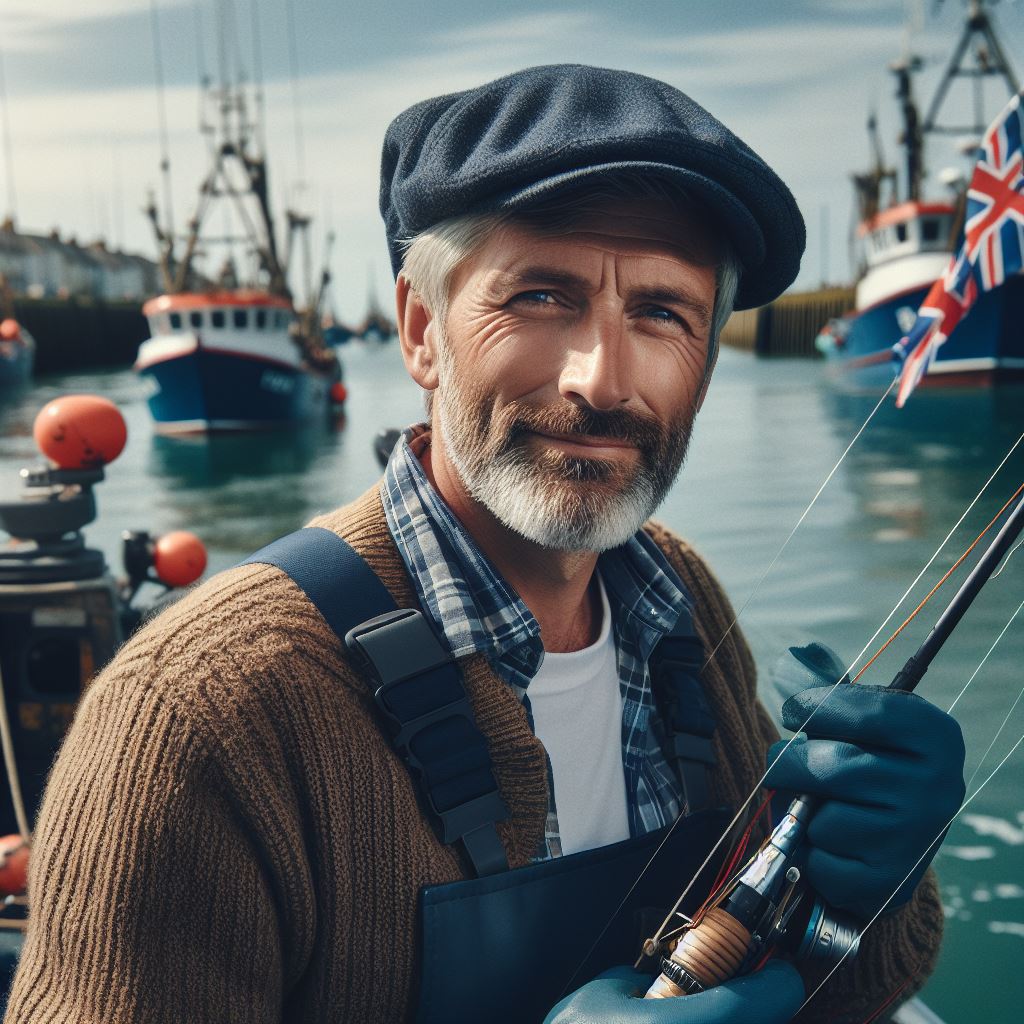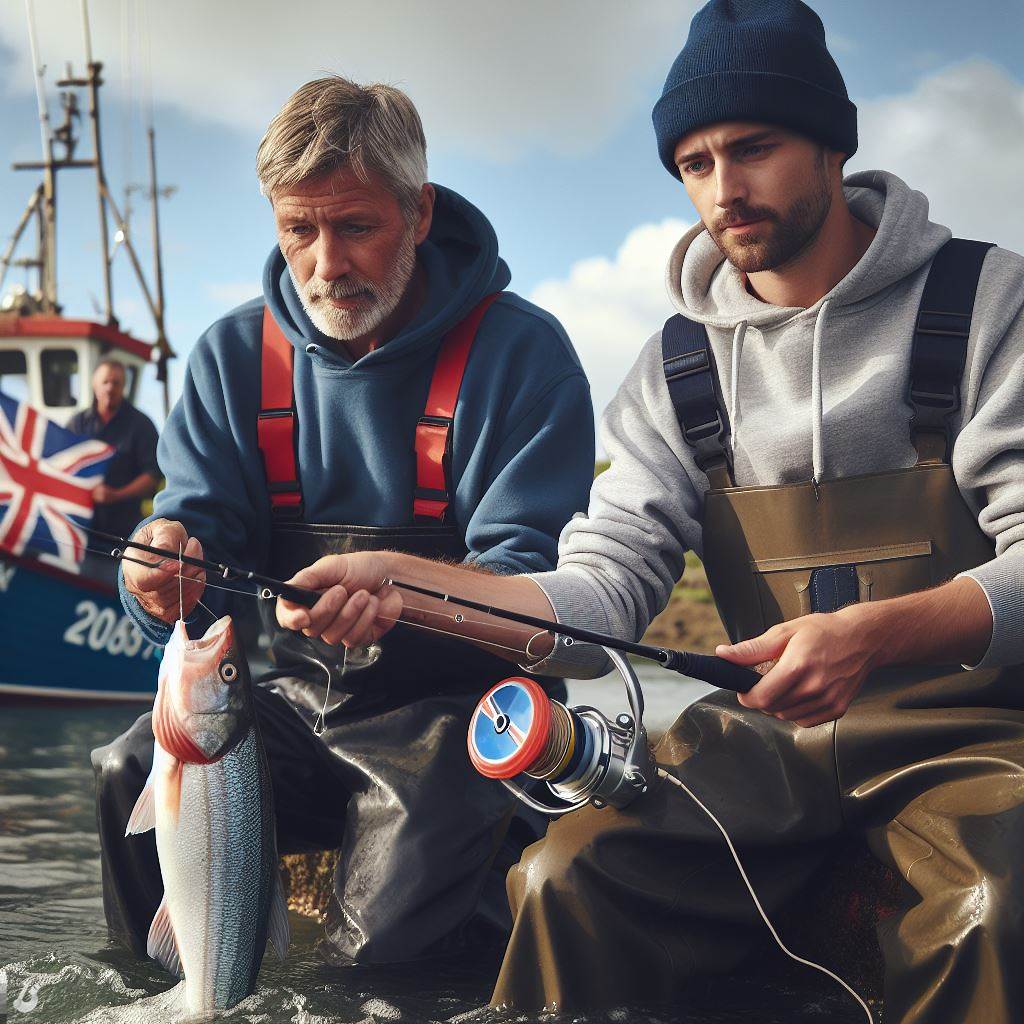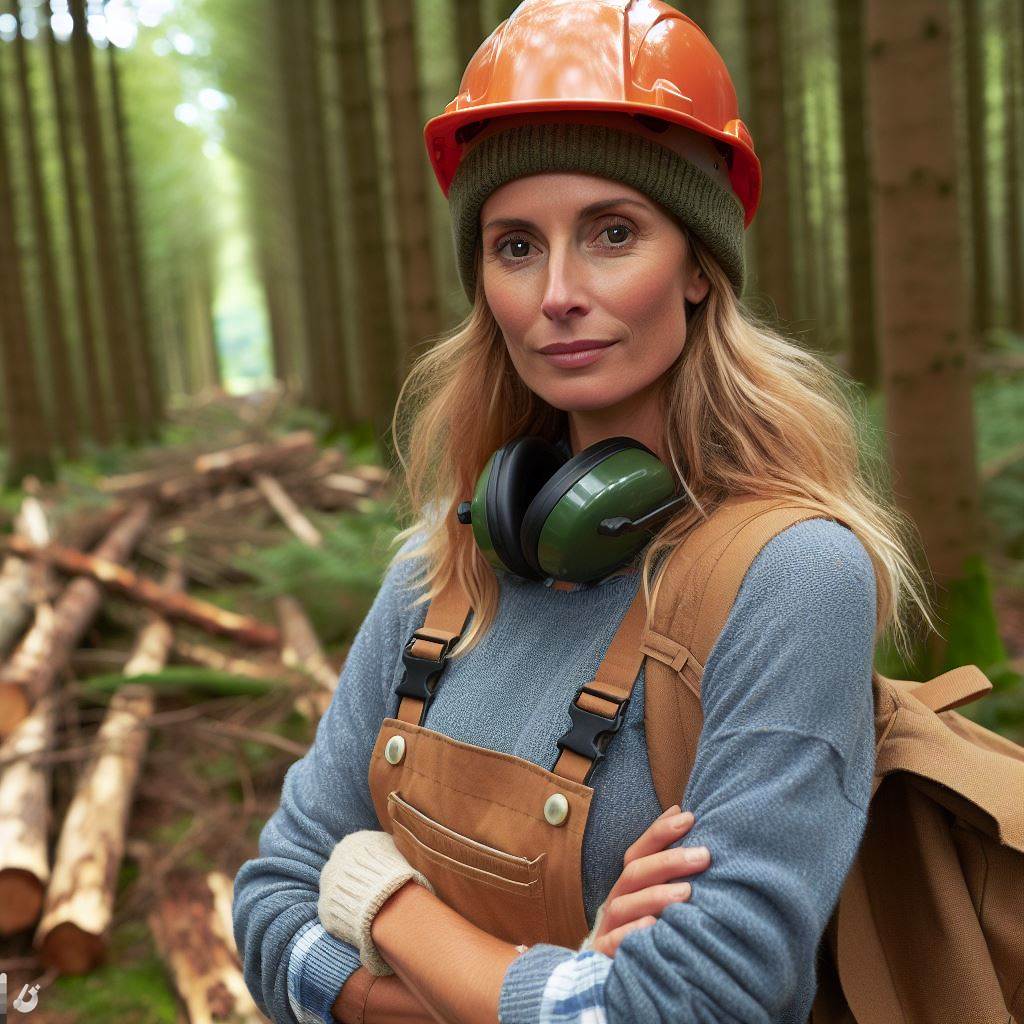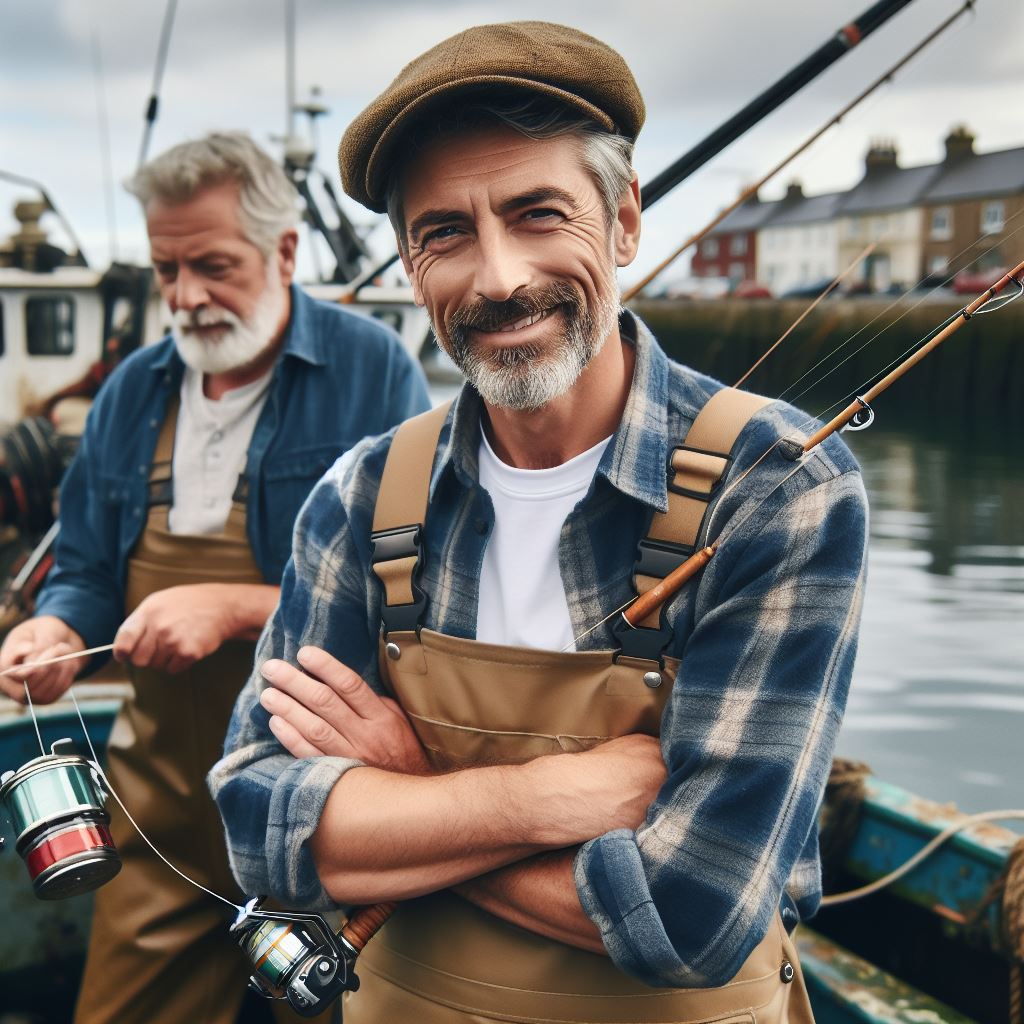Introduction
Explanation of climate change
Climate change, a global challenge, encompasses shifts in temperature, precipitation, and wind patterns affecting ecosystems and human activities.
Scientists, activists, policymakers, and various professionals contribute to addressing this critical issue.
In this blog post, we will delve into the efforts of UK fishermen, who are leading the charge in combating climate change.
Nowadays, climate change affects various aspects of our lives. Rising temperatures, extreme weather events, and sea-level rise have severe consequences for both natural ecosystems and human activities.
The fight against climate change requires a collective effort from individuals, communities, and entire nations.
The role of different professions in combating climate change
Scientists play a crucial role in studying and understanding climate change, providing essential data for future action.
In addition to scientists, activists and policymakers exert significant influence by raising awareness, advocating for sustainable practices, and implementing policies that aim to mitigate climate change.
Their contributions help shape public opinion, modify behavior patterns, and drive necessary action.
We must also acknowledge the vital role played by professionals from a wide range of fields, such as renewable energy, agriculture, and transportation.
The focus of the blog post: UK fishermen leading efforts
In this blog post, however, we will shift our focus to UK fishermen.
These brave individuals are not only responsible for feeding the population but are also on the frontline of experiencing the impacts of climate change firsthand.
They witness the depletion of fish stocks, changes in migration patterns, and the disruption to marine ecosystems.
Despite facing these challenges, UK fishermen have become leaders in adopting sustainable fishing practices and advocating for marine conservation.
Their efforts not only support the fishing industry’s long-term viability but also contribute to the global fight against climate change.
The impact of climate change on the fishing industry
Connection between climate change and fish populations
- Climate change leads to rising sea temperatures.
- Warmer waters affect the distribution and abundance of fish species.
- Some species may move to cooler regions, while others may decline or disappear.
- Changes in fish populations impact the overall productivity and sustainability of the fishing industry.
- Fisheries need to adapt their practices to the shifting patterns of fish populations.
Changes in ocean temperature and acidity affecting fish habitats
- Rising ocean temperatures disrupt the balance of marine ecosystems.
- Some fish species may struggle to survive in higher temperatures.
- Increased acidity levels due to carbon dioxide absorption affect fish physiology.
- Corals and other vital habitats for fish can be damaged by warmer waters and acidification.
- The loss of habitats and disruptions in food availability impact the fishing industry.
Challenges faced by UK fishermen due to climate change
- Changing fish populations require fishermen to adapt their fishing techniques and target different species.
- Shifts in migration patterns make it harder for fishermen to find and catch fish.
- Extreme weather events, such as storms and hurricanes, pose risks to the safety of fishermen and their equipment.
- Invasive species may thrive in new environments and compete with native fish.
- Declining fish stocks can lead to economic losses and job insecurity for fishermen.
- Fisheries management must implement effective measures to ensure the sustainability of the industry.
How UK fishermen are adapting to climate change
In recent years, UK fishermen have been forced to adapt to the effects of climate change.
This includes finding innovative ways to track fish populations and implementing sustainable fishing practices.
Advanced Technology for Tracking Fish Populations
One way UK fishermen are adapting to climate change is through the use of advanced technology. They have embraced satellite technology and electronic tagging systems to track fish populations.
By utilizing satellite technology, fishermen are able to access real-time data on ocean temperatures, currents, and other environmental factors.
This allows them to make informed decisions about where to fish and when, optimizing their catch and minimizing the impact on fish stocks.
Electronic tagging systems have also been instrumental in tracking fish populations. By attaching small tags to individual fish, scientists and fishermen can monitor their movements and behavior.
This data provides valuable insights into migration patterns and population dynamics, helping fishermen better understand how climate change is impacting fish populations.
Sustainable Fishing Practices
UK fishermen have recognized the importance of sustainable fishing practices in the face of climate change.
They have adopted various measures to ensure the long-term viability of fish stocks and minimize their impact on the marine ecosystem.
One such practice is the use of selective fishing gear. This involves using nets and traps that target specific species while avoiding non-targeted or undersized fish.
By reducing bycatch and discards, fishermen are able to minimize their impact on the overall fish population.
Another sustainable fishing practice is the implementation of fishing quotas and catch limits.
These measures ensure that fish stocks are not overexploited and allow for the replenishment of populations.
By adhering to these limits, fishermen are working towards a more sustainable and resilient fishing industry.
Partnerships and Collaborations
UK fishermen have also forged partnerships and collaborations with scientists and environmental organizations to better understand and adapt to climate change.
These collaborations involve sharing data, expertise, and resources to develop innovative solutions.
Scientists provide valuable insights into the impact of climate change on fish populations, while fishermen contribute their practical knowledge and experience of the ocean.
Personalized UK Career Consulting
Receive tailored career guidance designed just for you. Get actionable steps and expert support to boost your career in 1-3 days. Take control of your career now.
Get StartedEnvironmental organizations have also played a crucial role in educating and raising awareness among fishermen about climate change and its impact on marine ecosystems.
By working together, these partnerships support the development and implementation of sustainable fishing practices influenced by scientific research and conservation efforts.
Basically, UK fishermen have been at the forefront of adapting to climate change.
Leveraging advanced technology, embracing sustainable fishing, and collaborating with scientists, they strive to build a resilient, sustainable fishing industry amidst climate change.
Read: UK Farming Subsidies: Understanding the Basics
The role of UK fishermen in promoting climate action
Advocacy efforts
- UK fishermen actively engage in advocacy efforts to raise awareness about the impact of climate change on their industry.
- They participate in campaigns and initiatives aimed at educating the public and policymakers about the urgent need for climate action.
- By sharing their firsthand experiences and knowledge, fishermen play a crucial role in highlighting the consequences of climate change on marine ecosystems.
- They collaborate with environmental organizations to organize events, workshops, and public forums to reach a wider audience and promote climate awareness.
- Through social media platforms and traditional media outlets, fishermen share stories and data to emphasize the importance of sustainable fishing practices.
Participation in climate change conferences and discussions
- UK fishermen actively participate in global climate change conferences and discussions.
- They attend these events to voice their concerns, share their expertise, and advocate for policies that prioritize sustainable fishing practices.
- Fishermen contribute to discussions by presenting scientific research findings, innovative solutions, and practical measures to mitigate the impact of climate change.
- They engage in dialogue with policymakers, scientists, and fellow stakeholders to ensure their perspectives and experiences are considered in decision-making processes.
- Through their active participation, fishermen play a crucial role in shaping climate policies that promote the long-term viability of their industry.
Initiatives taken by fishermen to address environmental concerns
- UK fishermen have initiated various projects and initiatives to address environmental concerns associated with climate change.
- They actively engage in sustainable fishing practices, such as avoiding overfishing, reducing bycatch, and using innovative gear technologies.
- Fishermen participate in marine conservation programs to protect vulnerable species and habitats affected by climate change.
- They collaborate with scientists and researchers to collect data on the impact of climate change on fish populations and ecosystems.
- By implementing responsible fishing methods and adapting to changing environmental conditions, fishermen take proactive measures to minimize their carbon footprint.
Overall, UK fishermen play a crucial role in promoting climate action through advocacy efforts, participation in conferences, and various initiatives to address environmental concerns.
Their active involvement and expertise contribute to raising awareness, influencing policies, and ensuring the long-term sustainability of their industry in the face of climate change.
Read: The Evolution of Fishing in the UK: A Journey
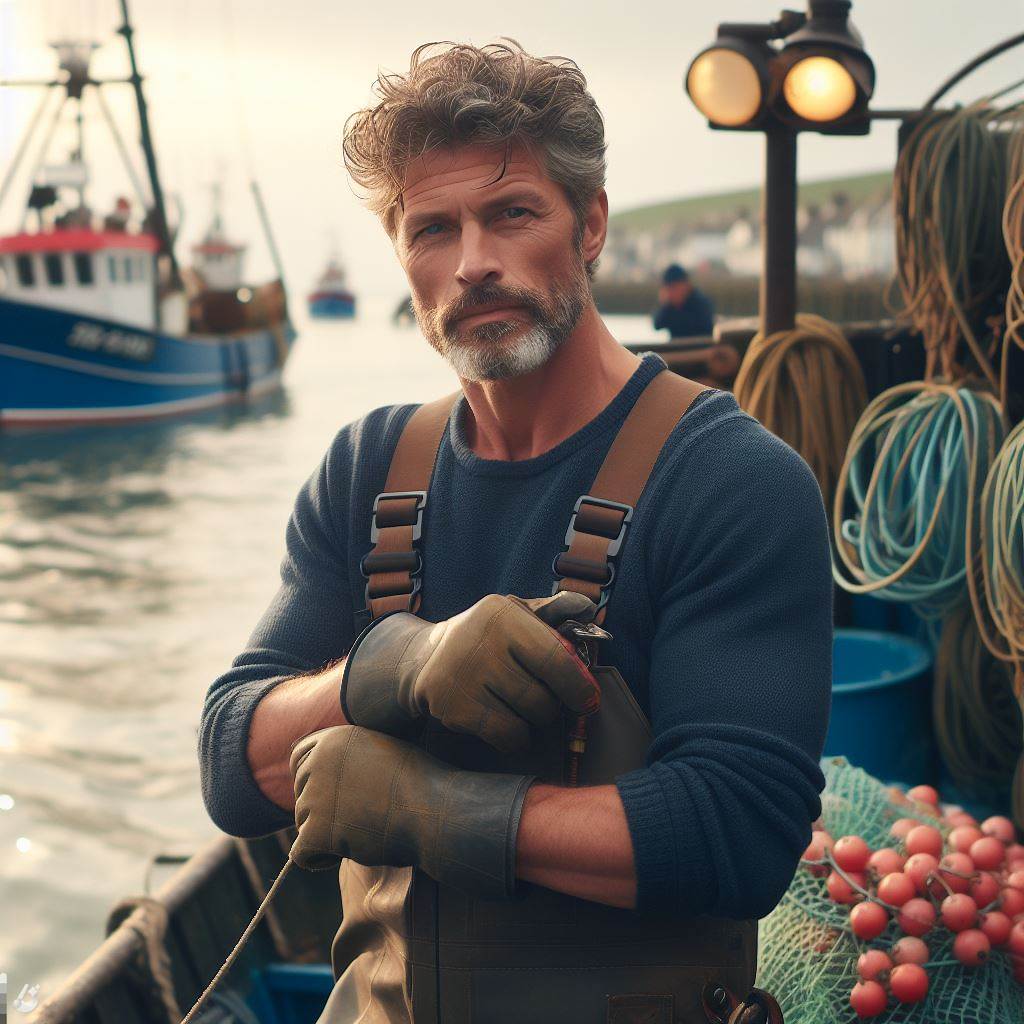
Success stories and positive outcomes
In recent years, UK fishermen have been leading successful conservation projects that have had a positive impact on the environment.
These efforts have not gone unnoticed, with fishermen receiving recognition and awards for their contributions to climate action.
Examples of successful conservation projects
- One notable success story is the establishment of Marine Protected Areas (MPAs) by UK fishermen.
- These MPAs have helped protect key habitats for marine species and have led to the recovery of several fish populations.
- For instance, the introduction of MPAs in the North Sea has resulted in the regeneration of cod stocks.
- Fishermen have actively participated in collaborative research programs to monitor the effectiveness of these protected areas.
- Through their direct involvement, they have contributed valuable data for assessing the success of conservation efforts.
- Another successful project led by UK fishermen is the innovative use of fishing gear that reduces bycatch.
- By incorporating turtle excluder devices and modified trawls, fishermen minimize accidental catches of non-target species.
- These efforts have been particularly effective in protecting endangered species such as sea turtles.
- Furthermore, UK fishermen have implemented seasonal and area closures to reduce the impact on sensitive habitats.
- These temporary fishing bans have allowed key areas to recover and replenish marine life.
Positive environmental impact
The efforts of UK fishermen have resulted in significant positive environmental impacts.
- By protecting and restoring key marine habitats, fish populations have rebounded, ensuring sustainable fishing practices.
- These conservation measures have also helped improve the overall health and resilience of marine ecosystems.
- Reducing bycatch through the use of innovative fishing gear has minimized harm to non-target species.
- By avoiding unnecessary catches, fishermen contribute to maintaining biodiversity and the balance of marine ecosystems.
- Additionally, seasonal and area closures have allowed sensitive habitats to thrive, supporting a wide array of species.
Recognition and awards received by UK fishermen in the field of climate action
UK fishermen have received recognition and awards for their commendable efforts in climate action.
- Several fishing communities have been commended for their contributions to sustainable fishing practices.
- They have been recognized for their proactive approach towards conservation and embracing environmentally-friendly methods.
- Awards such as the Green Fisherman of the Year have been presented to individuals who have shown outstanding dedication to protecting the environment.
- Their commitment to preserving marine resources and mitigating climate change has brought them well-deserved accolades.
- These awards not only recognize the accomplishments of UK fishermen but also inspire others to adopt similar practices.
Essentially, UK fishermen have been at the forefront of successful conservation projects that have had a positive impact on the environment.
Their efforts in establishing Marine Protected Areas, reducing bycatch, implementing fishing gear innovations, and supporting seasonal closures have yielded favorable outcomes.
Their commitment to climate action has been recognized through various prestigious awards, further motivating the fishing community to continue their sustainable practices.
It is through these success stories and positive outcomes that UK fishermen are leading the way in addressing climate change.
Read: Modern Fishing Gear: UK Fishermen’s Toolkit
Future challenges and opportunities
Potential challenges for UK fishermen in the future
- Rising sea temperatures and changing ocean currents affecting fish migration patterns and stock availability.
- Increased competition from foreign fleets due to changes in distribution of fish species.
- Loss of fishing grounds and access rights due to territorial disputes caused by climate-induced migration of fish.
- Changes in fishing regulations and quotas as a result of shifting ecosystems and conservation efforts.
- Higher operational costs due to the need for new equipment or modifications to adapt to changing conditions.
- Adverse weather events and extreme weather conditions impacting fishing operations and posing safety risks.
Additional measures and policies to combat climate change in the fishing industry
- Implement stricter regulations on fishing practices to reduce overfishing and minimize bycatch.
- Encourage the adoption of sustainable fishing methods, such as using selective gear and avoiding bottom trawling.
- Invest in research and development of climate-resilient aquaculture practices as an alternative to wild capture fisheries.
- Enhance monitoring and surveillance to prevent illegal, unreported, and unregulated fishing.
- Promote collaboration between scientists, policymakers, and fishermen to develop effective adaptation strategies.
- Provide financial incentives and support for fishermen transitioning to more sustainable practices.
Future opportunities for UK fishermen to lead global efforts in sustainability
- Position the UK as a global leader in sustainable fishing practices through knowledge sharing and best practice dissemination.
- Capitalizing on the demand for sustainably sourced seafood by promoting certified sustainable fisheries.
- Investing in research and development to identify and exploit new fish stocks that thrive in changing marine environments.
- Developing innovative technologies and fishing methods that reduce carbon footprint and minimize environmental impact.
- Collaborating with international organizations to advocate for stronger global policies tackling climate change and its impact on fisheries.
- Diversifying income streams through eco-tourism and supporting sustainable fishing-related tourism activities.
In a nutshell, while UK fishermen face potential challenges due to climate change, there are also opportunities for them to play a leading role in global efforts towards sustainable fishing.
It is crucial to address these challenges proactively by implementing additional measures and policies that combat climate change and support the long-term viability of the fishing industry.
Read: UK Fishing Laws: What Every Fisherman Must Know
Conclusion
In closing, UK fishermen stand as frontline warriors battling climate change’s aquatic onslaught.
Their pivotal role in sustaining ocean health cannot be overstated.
Optimism brims for their continued endeavors, resiliently navigating challenges to safeguard our marine ecosystems.
Let’s not merely applaud but actively support these stewards of the sea.
Together, we can amplify the impact of their tireless efforts.
As consumers, choose sustainably sourced seafood; as advocates, champion policies fostering responsible fishing practices.
Appreciate and acknowledge the unsung heroes beneath the waves—our UK fishermen.
In their dedication lies a beacon of hope for a healthier, more sustainable future.
Embrace this call to action, and let our collective support propel these custodians toward an oceanic equilibrium, resilient in the face of climate change’s relentless tides.
[E-Book for Sale]
500 Cutting-Edge Tech Startup Ideas for 2024 & 2025: Innovate, Create, Dominate
$19.99 • 500 Tech Startup Ideas • 62 pages
You will get inspired with 500 innovative tech startup ideas for 2024 and 2025, complete with concise descriptions to help you kickstart your entrepreneurial journey in AI, Blockchain, IoT, Fintech, and AR/VR.

